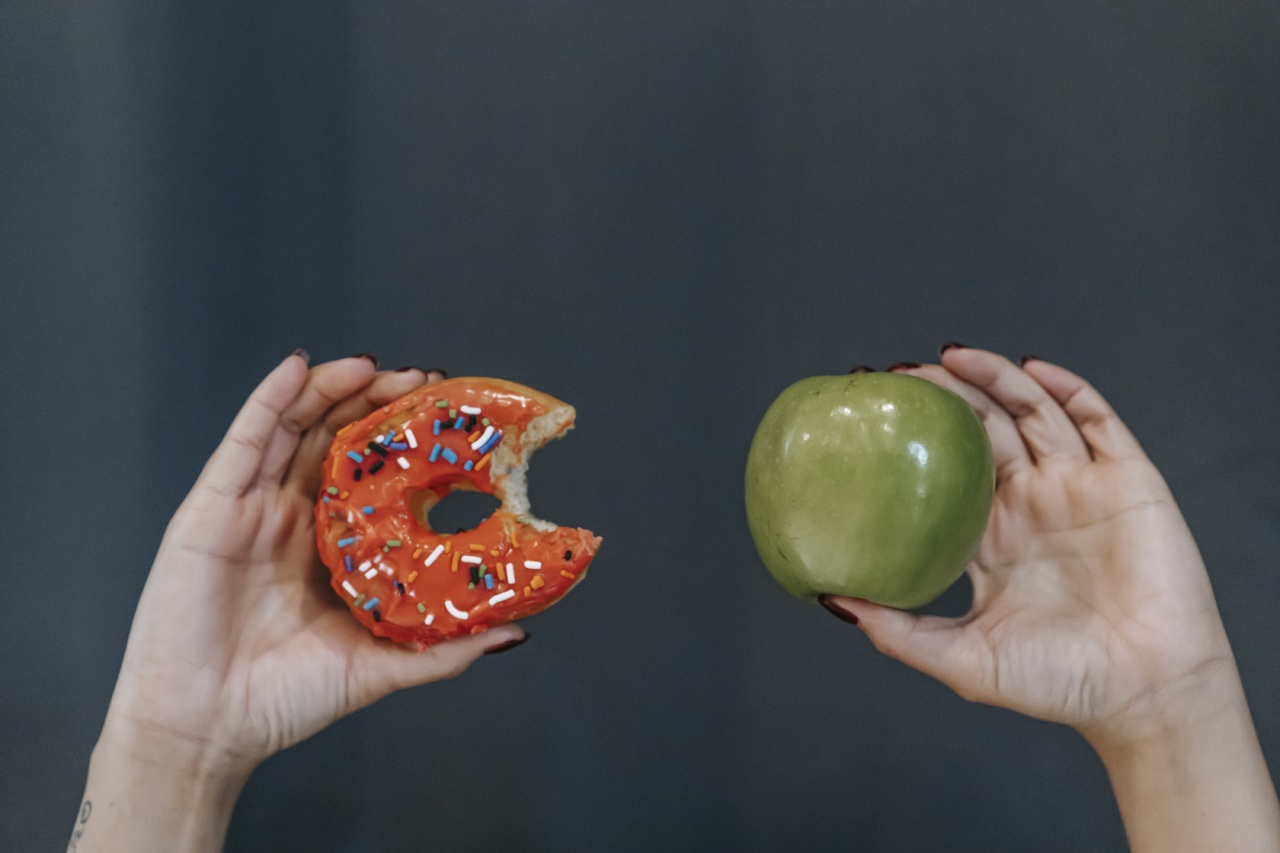It’s common to think that healthy eating involves a complete avoidance of high-calorie foods, but this isn’t entirely true. High-calorie foods can be a part of a healthy diet if chosen wisely and eaten in moderation.
To help you incorporate high-calorie foods that won’t ruin your diet, we’ve put together a list of delicious and nutritious foods that are worth adding to your diet.
Peanut Butter
Peanut butter is a calorie-dense food, but it’s also an excellent source of healthy fats, protein, and fiber, making it a great addition to any diet.
A tablespoon of peanut butter has about 90 calories and provides the body with essential nutrients like vitamin E, magnesium, and potassium, which help in regulating blood pressure and supporting a healthy immune system. Peanut butter also contains monounsaturated fats, which help lower bad cholesterol levels. You can add peanut butter to your smoothies, sandwiches, and even use it as a dip for fruits.
Nuts
Nuts are another fantastic source of healthy fats that can help you stay full and satisfied for longer periods. They’re high in calories, but they’re also packed with nutrients like vitamin E, fiber, magnesium, and potassium.
Eating nuts regularly has been linked to a reduction in the risk of heart disease, type 2 diabetes, and certain types of cancer. Some of the best nuts to include in your diet include almonds, walnuts, pecans, cashews, and pistachios.
Dark Chocolate
Dark chocolate is not only delicious, but it’s also rich in antioxidants and can help lower your risk of heart disease.
A 1-ounce portion of dark chocolate contains around 170 calories and 12 grams of fat, but it also has high amounts of essential minerals like iron, magnesium, and copper. If you’re looking to add dark chocolate to your diet, make sure to choose a variety that contains at least 70% cocoa, and keep your portions in check.
Avocado
Avocado is one of the healthiest sources of fats available, and it comes with a plethora of health benefits. It’s rich in monounsaturated fats that can help promote heart health, support weight loss, and improve digestion.
A whole avocado contains around 320 calories, but it’s also packed with nutrients like fiber, folate, B vitamins, vitamin K, and potassium. You can use avocado as a substitute for mayonnaise in sandwiches, add it to your smoothie or salad, or even use it as a spread on your toast.
Nut Butter
Similar to peanut butter, nut butter is a calorie-dense food that’s also a great source of healthy fats, protein, and fiber. It can be made with a variety of nuts, including almonds, cashews, and hazelnuts.
Nut butter is also packed with nutrients like magnesium, vitamin E, and iron. Using nut butter as a spread on toast or as a dip for fruits and vegetables is a delicious way to incorporate it into your diet.
Quinoa
Quinoa is a high-protein whole grain that’s also a great source of fiber, manganese, and magnesium. It’s also gluten-free, making it an excellent option for people with celiac disease or gluten intolerance.
A cup of cooked quinoa contains approximately 220 calories, but it’s also a great way to feel full and satisfied for a more extended period. Quinoa can be used as a base for salads, added to soups and stews, or as a substitute for rice in your favorite dishes.
Hummus
Hummus is a tasty dip made from chickpeas, tahini, garlic, and lemon juice. It’s a rich source of protein, healthy fats, and fiber, making it a great addition to any diet.
A 1/4-cup serving of hummus has around 150 calories, but it’s also filled with nutrients like iron, vitamin C, and vitamin B6. Hummus can be used as a dip for vegetables or crackers, used as a spread on sandwiches, or added to salads as a dressing.
Salmon
Salmon is a fatty fish that’s packed with heart-healthy omega-3 fatty acids, protein, and vitamin D. It’s also one of the best sources of vitamin B12, which is essential for brain function and energy production.
A 3-ounce portion of salmon contains approximately 121 calories, making it a great protein source that won’t completely derail your diet plan. Salmon can be baked, grilled, or added to salads to boost their nutritional value.
Edamame
Edamame is steamed soybeans that are commonly served as a snack or an appetizer in Japanese cuisine. They’re relatively low in calories, with a 1/2-cup serving consisting of around 120 calories.
Edamame is also an excellent source of plant-based protein, fiber, and essential minerals like iron, magnesium, and calcium. You can serve edamame as a snack, add it to salads, or use it as a topping for your favorite bowls.
Sweet Potatoes
Sweet potatoes are one of the healthiest sources of carbohydrates and fiber, making them a great food for regulating blood sugar levels and promoting healthy digestion.
A medium-sized sweet potato contains approximately 103 calories and is packed with essential nutrients like vitamin A, vitamin C, and potassium. Sweet potatoes can be baked, roasted, or steamed and served as a side dish.
Conclusion
When it comes to maintaining a healthy diet, it’s important to remember that not all high-calorie foods are created equal.
The foods mentioned above are all excellent sources of essential nutrients, healthy fats, and protein that can help you stay full and satisfied while also supporting your overall health and well-being. Just remember to enjoy them in moderation and as part of a balanced diet.






























